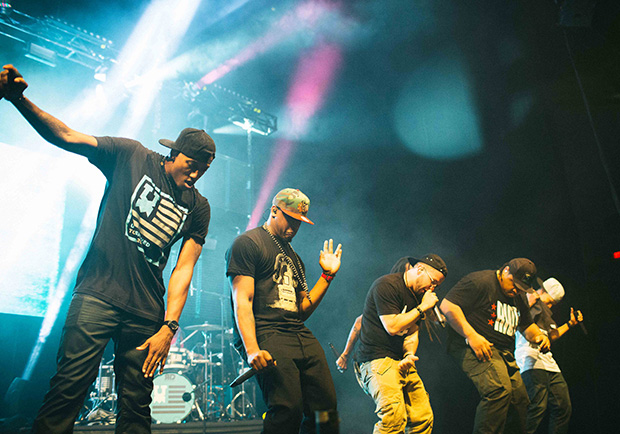Just five years ago, uttering the phrase "Christian hip-hop" in the average evangelical church would have met with blank stares.
All this has changed as artists such as Lecrae and Flame have exploded in popularity—winning awards, selling out shows, and racking up millions of downloads. Young believers have responded enthusiastically to the movement's blend of doxology and pedagogy.
But Christian hip-hop is showing signs of entering a new phase. Call it the "critical phase," one in which artists broaden their program to address cultural issues in evangelicalism or the public square.
In April, Sho Baraka, a rapper and elder at Blueprint Church in Atlanta, released a song entitled "Jim Crow" that uses strong language—including the controversial word nigga.
The song drew a heated response and engaged Christian leaders.
"It's being used in the same way that it was used in Uncle Tom's Cabin," noted Ken Jones, senior pastor of Glendale Missionary Baptist Church and a relative of Propaganda, a spoken-word poet. "Part of the baggage that [the term] will carry is that people are expecting a Sunday school lesson, and they're not necessarily going to get it."
Daniel White Hodge, author of Heaven Has a Ghetto: The Missiological Gospel and Theology of Tupac Amaru Shakur, approves of language that reaches "the general human experience."
"People aren't interested in coming to some crusade, saying a little prayer, and then thinking that their lives are going to be okay," he said. "Christian art tries to answer ultimate questions."
Rapper Trip Lee said he probably would not use the word, but noted that hip-hop is about provocation.
"It's a bold, in-your-face art form," he said. "It lends itself to movements—often rebellion against God and morality, but it can be used as a counter-rebellious force in society."
But Thabiti Anyabwile, senior pastor of First Baptist Church of Grand Cayman, said Christian rappers should note the call for pure speech in Ephesians 4:29. While this verse applies primarily to speech inside the church, its principles also "ought to go outside the church with hip-hop," he said. "That's part of what is going to make it an effective witness."
"Jim Crow" is not the only recent rap song to ignite controversy. Shai Linne's recently released "False Teachers" states that advocates of the prosperity gospel are "heretics Christianizing the American dream." Linne calls out a number of prominent pastors by name—including Joyce Meyer, Joel Osteen, Paul Crouch, T. D. Jakes, and Paula White.
White's son, Brad, publicly responded to Linne, calling the song "pure cannibalization without biblical reference" and arguing that the rapper had maligned his mother's genuine faith in Christ. Linne defended the song in an open letter. "Paula White lists 'financial abundance' as one of the promises of the Atonement," he wrote. "This is false. It is also a slap in the face to the millions of godly saints … who do not live in 'financial abundance' like many of us live here in America."
Observers wondered whether Linne should have named false teachers publicly. But theologian Bruce Ware cites passages such as 2 Timothy 2:16–18.
"Warning against false teaching is a mandate," he said. "False teaching comes through false teachers, so you have to warn your people about certain people whose teachings will lead you astray."
"Jim Crow" and "False Teachers" raise different issues, but reflect evangelical rappers' growing desire to speak to sociological and theological issues as their influence in the church grows.
"You can deal with tough subjects," said Anyabwile. "But you need to do so in a way that meets [that] litmus test."










